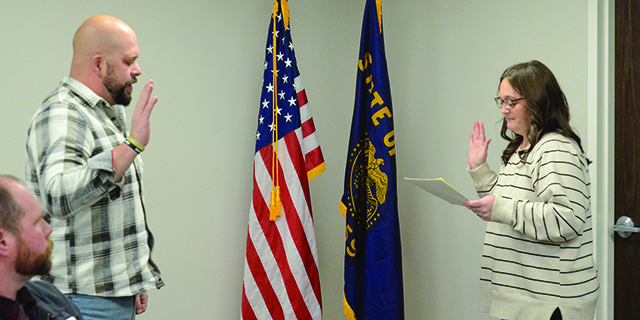POLITICAL PHILOSOPHY: Sometimes the potion works (presumably)
Published 5:00 pm Tuesday, September 24, 2013
Ever since I was a kid, I have enjoyed trying to recollect my dreams in the morning, often with the aim of figuring out what in the world might have accounted for those strange ideas that floated through my head while I slept. Here are a few disparate items that might have provided the ingredients for a peculiar dream that I experienced recently. Please bear with me before I let my dream help to tie these items loosely together.
More than 40 years ago, I saw the movie Little Big Man at the theater. I think I watched it again once on television, probably about 25 years ago.
Trending
As noted previously in this column, I like golf. I always considered Lee Trevino a great competitor with flair and a jocular sense of humor.
Another affable kidder is my fellow Rotarian Ted Hays. Recently a Chieftain ad noted that Ted and his wife Sharon celebrated their 50th wedding anniversary.
A few years ago, Ted changed the street name on his property to one that honored the lands Nez Perce heritage.
Lately, my bedtime reading has consisted of Phaedo, which records the last dialog of Socrates before he drank the fatal dose of hemlock; and The Golden Sayings of Epictetus, who was an admirer of Socrates and a Stoic who lived in the first century A.D.
Okay, thats enough background material. Now for my odd dream. As far as I can recall, three people were in it. One was a Native American elder who looked like a miniature version of Dustin Hoffmans adoptive grandfather from that classic movie, but who had a bantering personality that vaguely reminded me of the golfer who was known in a less politically correct age as Super-Mex. So well call this compilation Indian character Lee. The second person in the dream was Ted Hays, who appeared to be a good buddy of Lee. Lastly there was me, although I figured in the dream primarily just as an observer.
In the dream, for reasons unexplained, Lee had decided that the time had come for him to die, so he asked his pal Ted to devise a deadly potion that would send him on his way. Ted did his best to oblige Lees wishes, but the effect of Teds efforts was sufficient only to put Lee into convulsions and to leave him somewhat perturbed at Ted.
Trending
Then because of Teds ineptitude as a would-be suicide facilitator, the tables were turned and Lee prepared and administered a similar potion for Ted. This effort was no more successful than the previous one, launching Ted into spasms but ultimately leaving him and Lee equally critical of the others lack of expertise as a chemist and executioner.
Meanwhile I watched the entire series of events with a mixture of morbid fascination, alarm, concern, and finally amusement, because I got a kick out of listening to Lee and Ted trade barbs that were intended to be much less deadly than their potions. I started to say something about how much they enjoyed giving each other a good-natured ribbing, but then I held my comment back after I reflected that I didnt know what other bizarre rules might be involved in this botched suicide enterprise.
Im not sure what moral, if any, my dream might have. Socrates might have seen it as a reminder that it is perfectly fitting for a person to contemplate and even welcome the prospect of death. Epictetus might have observed that all things, including those that are often considered misfortunes, are really undeserved blessings which should be accepted gratefully, or at least without complaint. And I would add, that reading philosophy at bedtime can generate surprising and amusing nocturnal concoctions.
John McColgan writes from his home in Joseph.









